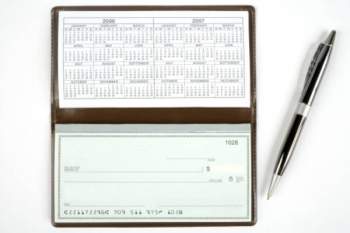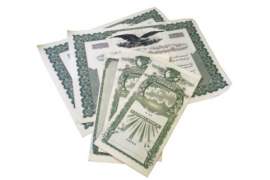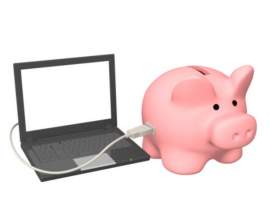
The Full Guide to Using Checks

Checks are a versatile form of negotiable instrument. While they are defined under the Uniform Commercial Code such that all checks are somewhat similar and can be treated equally, there are many specialized forms of check that are designed to fulfill different functions,so as to facilitate transactions for which a normal check might not be adequate. Understanding the role of each of these specialized checks is important, as one might need to use such a specialized check should one find oneself in the appropriate situation.
Background
Checks have been used for payments for a long time, as checks were actually one of the first forms of negotiable instruments. Today checks have a more specific, functional form, as defined by the Uniform Commercial Code, but even this form is not necessarily perfect for all the many necessities that have arisen over time.
In particular, checks do not provide as much of an assurance of payment as some recipients and payees might desire, as checks can still be denied regardless of the mere fact of their issuance. Additionally, checks are often an unwieldy or problematic form of payment compared to simpler methods. Hence, specialized checks such as cashier's checks, traveler's checks, and certified checks arose to fill in the gaps. Find out more about the basic functioning of these specialized checks by clicking the link.
Cashier's Check
When one needs a check which is fully validated by another party, then a cashier's check may be the route to go. A cashier's check, unlike most other checks, does not involve the party initially obtaining and holding the check directly in and of itself. Instead, the purchaser of a cashier's check pays a bank a certain amount of money for the cashier's check. The bank then makes out the cashier's check for the purchaser. Thus, the cashier's check itself does not involve the money of the purchaser, as the purchaser instead made a payment to the bank. The cashier's check only involves the bank's own funds and any payment on the cashier's check will come directly from the bank, as opposed to from an individual's account.
A cashier's check is often somewhat more dangerous to hold than a regular check because a cashier's check is much closer to cash than a regular check, as the cashier's check is usually cleared instantly by a bank. This makes cashier's checks ripe for some forms of fraud and it makes them highly desirable for stealing. But in the event that the purchaser needs guaranteed funds, a cashier's check will very likely be better than any other available option, and indeed, may be the only available option. For more information on cashier's checks and how they function as sources of guaranteed funds, follow the link.
Traveler's Check
Traveler's checks are checks suited particularly for travelers. These are checks which are guaranteed, such that the holder can use them in foreign countries with little difficulty and if the traveler loses them or the traveler's checks are stolen from him or her, he or she will be able to get replacements from the issuer. This kind of guarantee is very desirable for any check user, in general, and for the traveler especially, considering that it would be more difficult to obtain replacement funds from one's own account when one is abroad than it would be to do so at home.
Traveler's checks are also somewhat different from other checks in that they come in pre-set values, generally in printed packs, which the purchaser must buy as a group from a given agent or seller. These packs of traveler's checks are issued from a different party than the entity selling them, but this is irrelevant from the purchaser's perspective, beyond the fact that the purchaser, when seeking replacements, should seek them from the issuer first, as opposed to the agent.
Traveler's checks are also sometimes used for scams or fraud because of their unique traits. For example, a fraudster might attempt to report a traveler's check as stolen so as to be issued a replacement while selling the original to a different party for some profit. Regardless, the point of traveler's checks as guaranteed funds and safe to use for the traveler is very well served by the traits of the check. To find out more about traveler's checks and their unique properties, click the link.
Certified Checks
A certified check is very similar, in principle, to a cashier's check. Instead of paying the bank and then receiving a check that will draw upon the bank's own accounts, however, the point of a certified check is instead to draw upon the account of the check's drawer, while still providing the same level of assurance to a payee that is provided by a cashier's check.
When a drawer wants to certify a check, he or she must present the check to his or her bank, which will then check to make sure that the drawer has enough funds in his or her account to pay for the check. Then the bank will put a hold on those funds and will certify the check. This means that when the certified check is cashed, there will definitively be enough money in the account to pay off the check. Thus, any payee or recipient of a certified check is assured that the check will be paid and will not bounce. The drawer of the check may encounter some difficulty based on the fact that the money for the check will be frozen and inaccessible, though it may still be reported on statements until it is drawn from the account officially, but this is negligible next to the assurance that there will be no problems from a bounced check.
Most of the time, certified checks are used in situations where either the payee does not trust the drawer's credit or where the transaction is for a high value or is of great importance, and thus, the payee wants some kind of assurance of payment. Follow the link for more information on certified checks and their advantages and disadvantages.
Lost, Destroyed, Stolen Checks
Lost, destroyed, or stolen checks are a problem for any user of checks, and knowing how to deal with such a situation when it crops up is important. In general, any time a check has been stolen, the correct strategy is to get in contact with the bank associated with the check and have that bank put a stop order on the check. That way, hopefully, no payment will be made on the check. Such a stop would likely prevent any misuse of the stolen check and would also help to prevent any fraudulent submission of the check with a forged signature, for instance.
A lost check might not require such a stop, depending on the situation, but it likely would simply so that a new check could be issued as a replacement for a lost check that will never be found. Similarly, an unintentionally destroyed check would require such a stop so as to end any effects of that check's existence.
But some of the specialized forms of checks might require different procedures and might actually lead to better outcomes if they were lost or stolen. For example, a traveler's check is specialized because it comes with a guarantee of replacement, assuming the original purchaser retains certain information. A certified check, on the other hand, would require a number of different actions to be taken in order to be replaced in any significant fashion. For more information on lost, destroyed, or stolen checks and how to deal with each type, click the link.
Honoring Checks and Misc. Information
Checks do not function if they are not honored by their drawees. To honor a check is to accept that check for payment. If drawees do not honor the checks presented to them for payment, then a check is worthless. Understanding, then, the system by which checks are honored and the reasons for which a check might not be honored is critical to understanding the system of checks. Furthermore, there are several elements attached to honoring checks which are important to understand in order to understand the full checking system.
Overdraft fees, for example, are fees which are charged on an account which does not have the necessary money to support payment for a check. Instead of simply denying payment for the check as having insufficient funds in the account, banks will often honor those checks and will charge the drawer the additional overdraft fee. This type of practice is important to be aware of, as some may have thought that overdrawing an account would result only in a bounced check and not in additional fees.
One can use practices such as postdating checks in order to avoid any trouble with overdraft fees, although this is not entirely foolproof. Postdating a check would theoretically mean that the check in question, while it might still be honored by a bank, could not be drawn from the drawer's account until the date mentioned on the check. By postdating a check, a drawer might give himself more time to deposit money into his account to ensure that the account will not be overdrawn. These and more elements are all important components of the overall system of honoring checks. To learn more about these practices, and about honoring checks in general, follow the link.
NEXT: Watch Out for those Overdraft Fees!




















